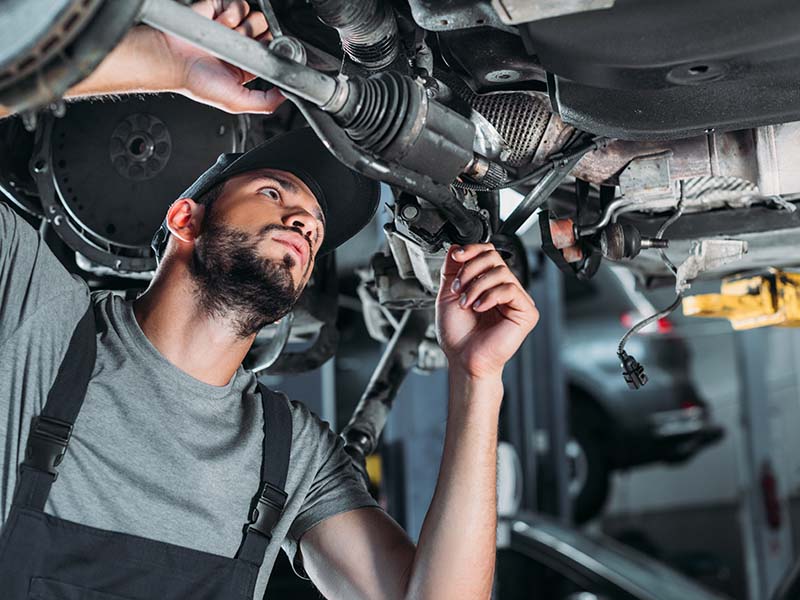All Categories
Featured
When your vehicle experiences a significant breakdown, the expense of repair work can be a complicated financial factor to consider. Whether it's the failure of a critical system like the engine or transmission, or the requirement for comprehensive repairs to different elements, recognizing the aspects that affect repair prices can aid you make even more educated choices. Below, we outline the essential factors that contribute to the expense of major automobile repair work.
![]()
![]()
![]()
Final thought. A number of aspects affect the price of significant auto repair services, consisting of the type of repair work, the make and version of your vehicle, the top quality of the parts used, labor charges, and the level of the damage. Comprehending these aspects can help you make more educated choices and plan for the monetary effects of automobile repairs.

- Sort of Fixing. The primary factor influencing the price of cars and truck repairs is the type of concern your automobile is experiencing. Particular systems in an automobile, like the engine or transmission, require more time to identify and fix, which straight translates into higher labor charges.
- Vehicle Make and Version. The make and model of your car plays a significant role in figuring out fixing expenses. High-end cars and high-performance cars like BMWs, Audis, or Mercedes-Benz often tend to have higher repair prices because of their specialized components, progressed modern technology, and the experience required for their repair work.

- Parts High Quality and Accessibility. The high quality of the parts made use of in the repair service significantly influences the expense. Since they are designed specifically for your lorry and are guaranteed to satisfy manufacturing facility standards, original Tools Producer (OEM) components are commonly a lot more pricey than aftermarket components. While OEM parts make certain high quality and sturdiness, they frequently include a greater rate tag. Aftermarket parts might be much less expensive yet can vary in top quality. In some cases, less costly aftermarket components may lower the total repair service cost, however they might not supply the exact same long life as OEM components, which could lead to extra repair services in the future. The schedule of parts, especially for older or unusual vehicles, can also affect the cost. If components are hard to discover, it might take longer to complete the repair work, bring about greater labor expenses.
- Labor Costs. Labor is one of the biggest expenditures when it involves car repairs. Mechanics typically charge by the hour, and repair service times can vary relying on the complexity of the problem. Some fixings, such as engine overhauls or transmission fixes, might need several hours and even days of labor, considerably enhancing the complete expense. Labor rates likewise rely on the area of the service center-- mechanics in urban locations or high-demand areas might bill greater rates because of the cost of living and overhead. Additionally, specialized repairs for facility systems might need more skilled technicians, whose per hour prices tend to be greater.
- Degree of the Damage. The level of the damages is another essential variable affecting fixing costs. If the damages is restricted to one part of the automobile, such as a broken generator or damaged brake pads, the repair will normally be less expensive.
- Car Age and Problem. The age and general condition of your lorry play a significant role in the price of fixings. Well-maintained cars tend to have reduced fixing costs because their systems are in far better working condition, requiring fewer and less pricey fixings.
- Store Place and Track Record. The service center you choose can additionally influence the cost of your repairs. Shops situated in metropolitan or high-cost locations often tend to bill greater rates for labor and parts. Furthermore, service center that focus on certain brands or sorts of repair work might charge much more for their experience. While it's appealing to decide for the least expensive shop, often paying a bit a lot more for a reputable shop can result in much better top quality job, less mistakes, and less risk of needing further repair services. It's always a great concept to ask and check evaluations for referrals before selecting a service center.

- Service Warranty and Insurance Policy Protection. If your cars and truck is still under warranty, major fixings may be covered, which can dramatically decrease your out-of-pocket expenditures. Some extended warranties or solution agreements might also supply insurance coverage for specific kinds of repair work, like engine or transmission failure. Additionally, if the damage is triggered by an accident or external variable, your vehicle insurance coverage might cover the fixing prices, less any insurance deductible. Always check with your guarantee carrier or insurance provider to see if the issue is covered, as this could save you a significant quantity of money.
Final thought. A number of aspects affect the price of significant auto repair services, consisting of the type of repair work, the make and version of your vehicle, the top quality of the parts used, labor charges, and the level of the damage. Comprehending these aspects can help you make more educated choices and plan for the monetary effects of automobile repairs.
Latest Posts
Become a Member of Red Hawk Loyalty Rewards to Accumulate Points Every Time You Visit.
Published Jan 14, 25
1 min read
Elevate Your Marketing Strategy with Full Circle Marketing
Published Jan 14, 25
2 min read
Your Partner in Marketing Excellence: Full Circle Marketing
Published Jan 14, 25
2 min read
More
Latest Posts
Become a Member of Red Hawk Loyalty Rewards to Accumulate Points Every Time You Visit.
Published Jan 14, 25
1 min read
Elevate Your Marketing Strategy with Full Circle Marketing
Published Jan 14, 25
2 min read
Your Partner in Marketing Excellence: Full Circle Marketing
Published Jan 14, 25
2 min read